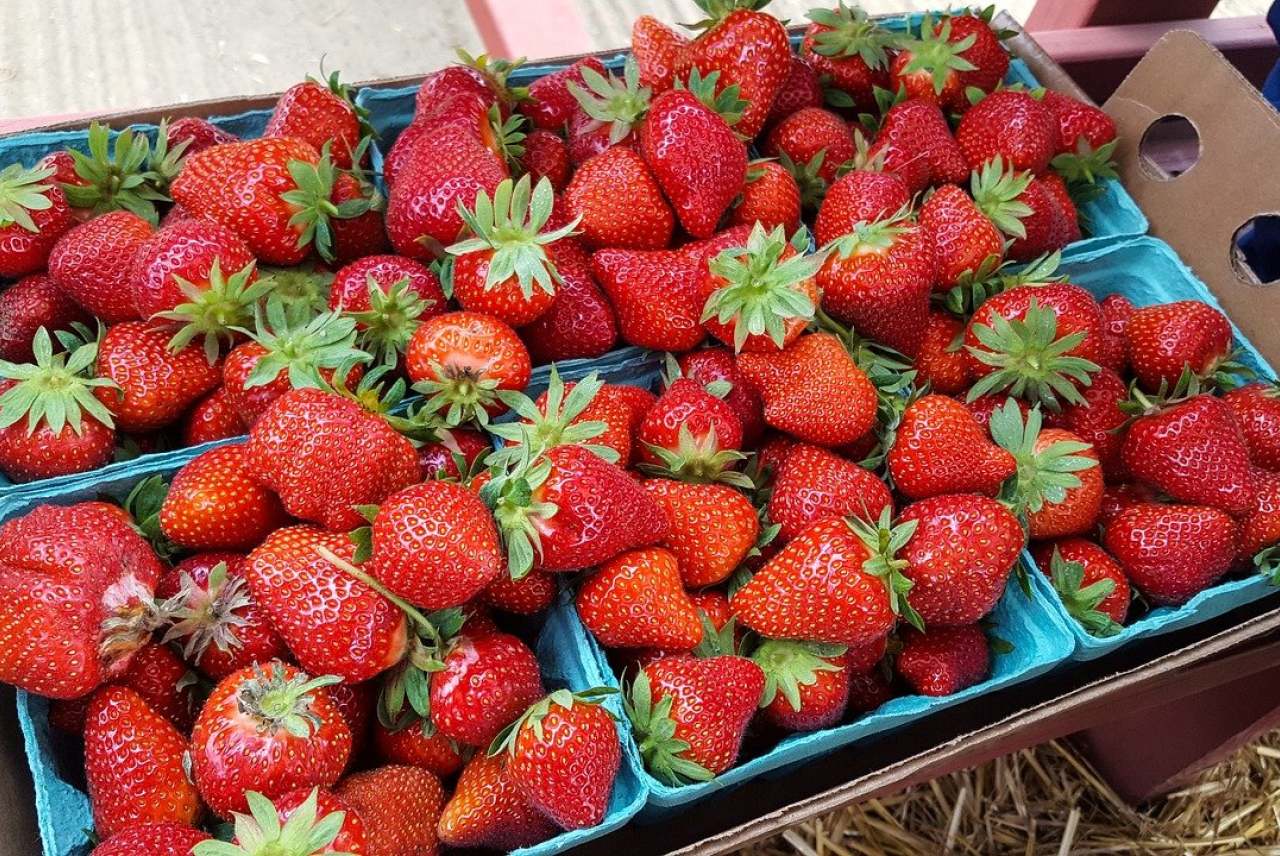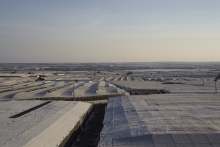We spoke to a second anonymous worker, originally from Seville, who has worked at the Huelva-based company Surexport for two years. Surexport is a berry company that features the Tesco logo on its website and is said to be one of the supermarket’s main berry suppliers.
“The first year I worked at Surexport for a few months and it was a very good experience, so I decided to come back and work here again. This year has been a completely different experience. It’s been so bad.”
The worker said that one time during the height of the pandemic she was feeling unwell and dizzy. She fell over and asked the person in charge if she could go outside. She was dismayed at their response. “They yelled at me. I don’t like the way they have treated us.”
She continued, “There have been various colleagues who have caught coronavirus. By this I mean they had symptoms, or were in quarantine. The business never told workers this. Workers shared the information but those in charge threatened to fire them if they spoke about the issue.”
Surexport commented: “We do not condone any supervisor or person in authority at Surexport yelling at any worker, this behaviour is not acceptable to us, and we have a number of procedures in place that workers can anonymously report any harsh or unfair treatment. Before this complaint, nothing has been reported to us of that nature from any of our farms”. The company also sent Ethical Consumer a range of documentation related to Covid-19 procedures.
Scroll down to read more of the company’s response.
The interpretations of the company management and the anonymous worker appear to be conflicting. There is also the possibility that this was a one-off instance of one supervisor not following Surexport’s policies.
Defending the rights of workers
Jornaleras de Huelva en Lucha and Sindicato Andaluz de Trabajadores (SAT) are two organisations working in Huelva to challenge the workers’ rights abuses.
Ana Pinto used to work on the farms, and is now part of workers’ rights collective Jornaleras de Huelva en Lucha. As she is vocal about workers’ rights abuses in the sector, no companies will hire her. “Since I began publicly denouncing what’s happening, all doors closed to me.”
Pinto recently began working with a cooperative of lawyers that asked her to be a mediator in a project that offers free legal advice to workers in the sector.
Pinto stated “We’ve been contacted by workers from three of the largest red fruits companies in Huelva, frightened because businesses prohibit them talking about coronavirus. They believed colleagues were getting infected and the business was hiding it.”
One worker, who did not wish to state their workplace, told Pinto that managers are threatening to fine workers hundreds of euros if they speak about coronavirus - such as discussing medical records that show they have possible virus symptoms. This means employees that have symptoms and self-isolate could be fined if they try to warn other colleagues with thom they have been working in close contact that they may be at risk.
We’ve been contacted by workers from three of the largest red fruits companies in Huelva, frightened because the businesses prohibited them from talking about coronavirus.
Jose Antonio Brazo is part of the union Sindicato Andaluz de Trabajadores (SAT) in Huelva. While business owners appear to be denying the possibility that there have been outbreaks among workers, many of whom live in shantytowns, Brazo is sceptical that this is the reality.
Workers have been vocal about the lack of PPE and social distancing since the start of the pandemic.
Brazo said, “Since the pandemic began, there has been a widespread lack of basic PPE, water, sanitizer, masks, gloves, and social distancing. One manager even said many businesses would prefer to pay the penalty if they have an inspection, rather than spend one or two days buying PPE, masks and gloves for workers.”
“If there have been cases of coronavirus, they have been censored and not come to light. It’s a ‘miracle’ that in not a single shantytown, lacking water, basic essential services, and rubbish collection, there hasn’t been a single case of coronavirus.”
Ethical Consumer has been writing about the working and living conditions for agricultural workers in southern Spain since the beginning of 2019. Many companies in the region, which major UK supermarkets source fresh produce from, are accused of violating workers’ rights.
British supermarkets have not acknowledged responsibility for the actions of these companies, despite these workers likely being a part of UK supermarket supply chains.
Although all the major UK supermarkets claim to have adequate policies in place, they are clearly failing to protect those in their supply chains in some instances.
Read our list of demands for UK supermarkets and contact them directly to ask them to make the changes.
Company responses







